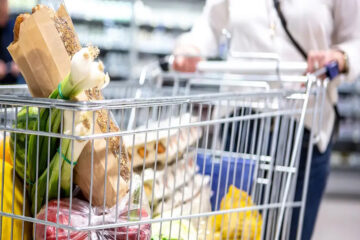Analyzing the Impact of the Francis Scott Key Bridge Collapse on Baltimore Businesses

The recent collapse of the Francis Scott Key Bridge in Baltimore has sent shockwaves through the local business community, raising concerns about the potential disruptions to distribution and deliveries in the area. The collapse, which occurred early on Tuesday morning following a collision with a cargo ship, prompted Maryland Governor Wes Moore to declare a state of emergency. With the Port of Baltimore shuttered and major traffic arteries severed, businesses are bracing themselves for the fallout.
Disruption in Distribution Channels
The immediate closure of the Port of Baltimore, one of the largest ports in the US by cargo volume and value, has dealt a significant blow to businesses reliant on maritime transportation. Moreover, the collapse has severed a critical transportation artery, impacting the flow of goods to and from distribution centers located near the bridge, such as those at Sparrows Point. Companies like Amazon, Home Depot, FedEx, BMW, and Volkswagen, which operate distribution facilities in the vicinity, are likely to face delays and logistical challenges in the coming weeks.
Economic Ramifications
Experts warn of widespread disruptions across the supply chain, with ripple effects extending beyond the immediate vicinity of the bridge collapse. Dave Marcotte, a retail and supply chain expert, anticipates disruptions in container seaboard, train routing, and East Coast trucking operations. Neil Saunders, managing director of GlobalData’s retail division, echoes these concerns, highlighting potential increases in journey times and costs for incoming and outgoing goods.
Response from Affected Businesses
In the wake of the bridge collapse, businesses operating in the affected area are scrambling to assess the impact on their operations. While some companies anticipate short-term traffic delays, others remain cautiously optimistic about maintaining business continuity. Automakers like BMW and Volkswagen assure minimal disruptions to their operations, citing strategic location considerations. Meanwhile, logistics hubs like Tradepoint Atlantic are liaising with emergency response officials to navigate the evolving situation.
Preparing for Prolonged Disruption
As businesses brace for the possibility of prolonged disruptions, local establishments are bracing themselves for the long road ahead. The Hard Yacht Cafe, situated near the collapsed bridge, acknowledges the uncertainty surrounding the extent of the impact but anticipates significant disruptions to travel patterns. Similarly, Royal Farms, a convenience store located in the vicinity, remains operational but recognizes the challenges posed by the collapse.
Conclusion
The collapse of the Francis Scott Key Bridge has underscored the vulnerability of critical infrastructure and the interconnectedness of business operations. As Baltimore businesses grapple with the aftermath of the disaster, resilience and adaptability will be essential in navigating the uncertainties ahead. With concerted efforts from stakeholders and proactive measures to mitigate disruptions, the business community aims to weather the storm and emerge stronger in the face of adversity.
















